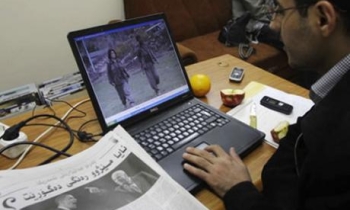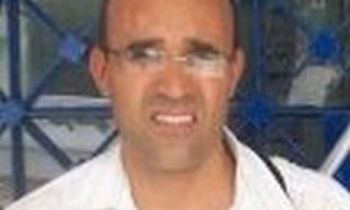The Association of European Journalists (AEJ) passed resolutions last week urging the UN not to discriminate against Taiwanese journalists reporting on its activities.
The association's call comes after local journalists reiterated during a visit by AEJ members to Taiwan last month that the UN should respect the right of Taiwanese media to cover international conferences.
Members of the AEJ delegation said that they were shocked to learn that UN agencies, specifically the Geneva-based World Health Organization (WHO), operated a policy that discriminated against Taiwanese journalists wishing to report the work of UN agencies.
"The association cannot stress strongly enough that it is not for the UN press services to make arbitrary or political distinctions between the media keen to cover the organization's activities," Nicolaas Kramer, international secretary-general of the AEJ, said in the resolution.
He said to do so is an obvious contradiction of the UN's declared principles about press freedom.
Kramer also said the UN's actions compare unfavorably with EU institutional practice, which is to allow accredited press access to its buildings and meetings without distinction or bias.
The AEJ General Assembly calls for an end to the UN's unbecoming use of double standards in the granting of access permits, he said.
In May, the UN Office in Geneva refused to accredit Taiwanese journalists who wanted to cover the World Health Assembly's (WHA) annual meeting.
In addition, last year, two Taiwanese reporters holding passports from UN member states were accredited in Geneva for the WHA proceedings, while all journalists holding Taiwanese passports were denied accreditation.
The UN's refusals have been criticized by several international human-rights groups, which have urged the world body not to damage press freedom.
Taiwanese reporters should enjoy the same rights as their press counterparts around the world, they said.
During the AEJ delegation's visit to Taiwan, local journalists said that they should not be linked to the government and should be independent in a democratic society.
"We are not reporting for the government, but for the general public in Taiwan," said a journalist surnamed Liu.
"All journalists should have the same rights," Liu said.
The AEJ was established in 1961 by 70 journalists from the six then-member states of the European Economic Community, in the hope that journalism could promote harmony and unity.
The AEJ has since expanded to include several nations throughout Europe. The countries are not necessarily members of the EU, but work together to promote the interests of journalists involved in European affairs and to preserve the freedom of the press.









